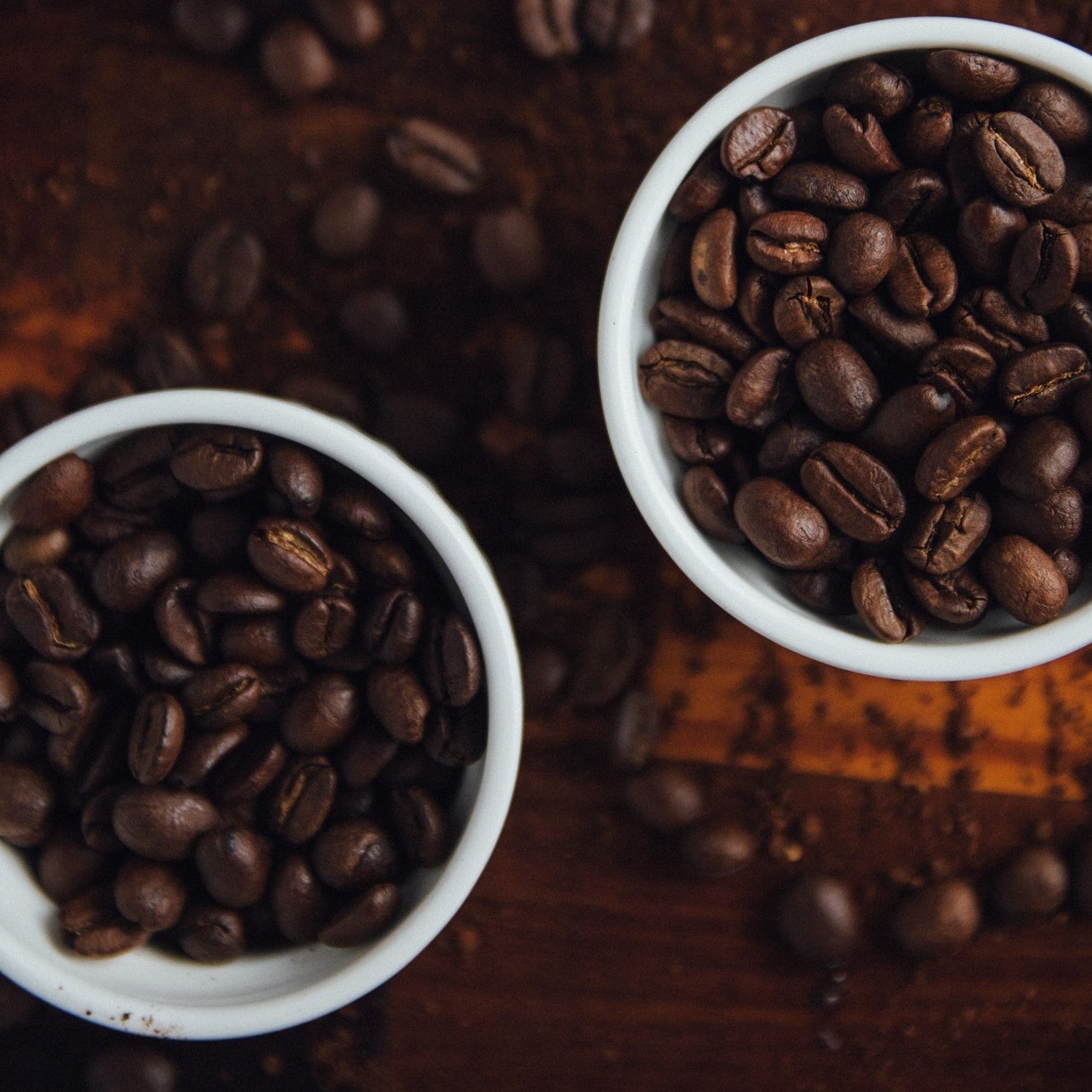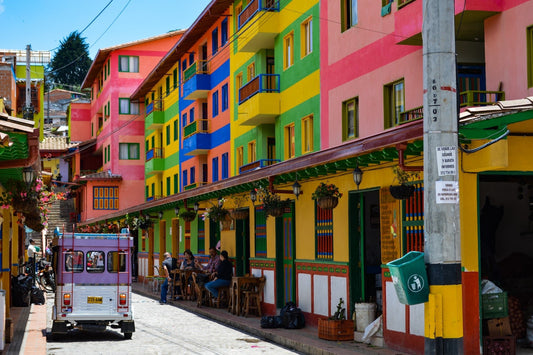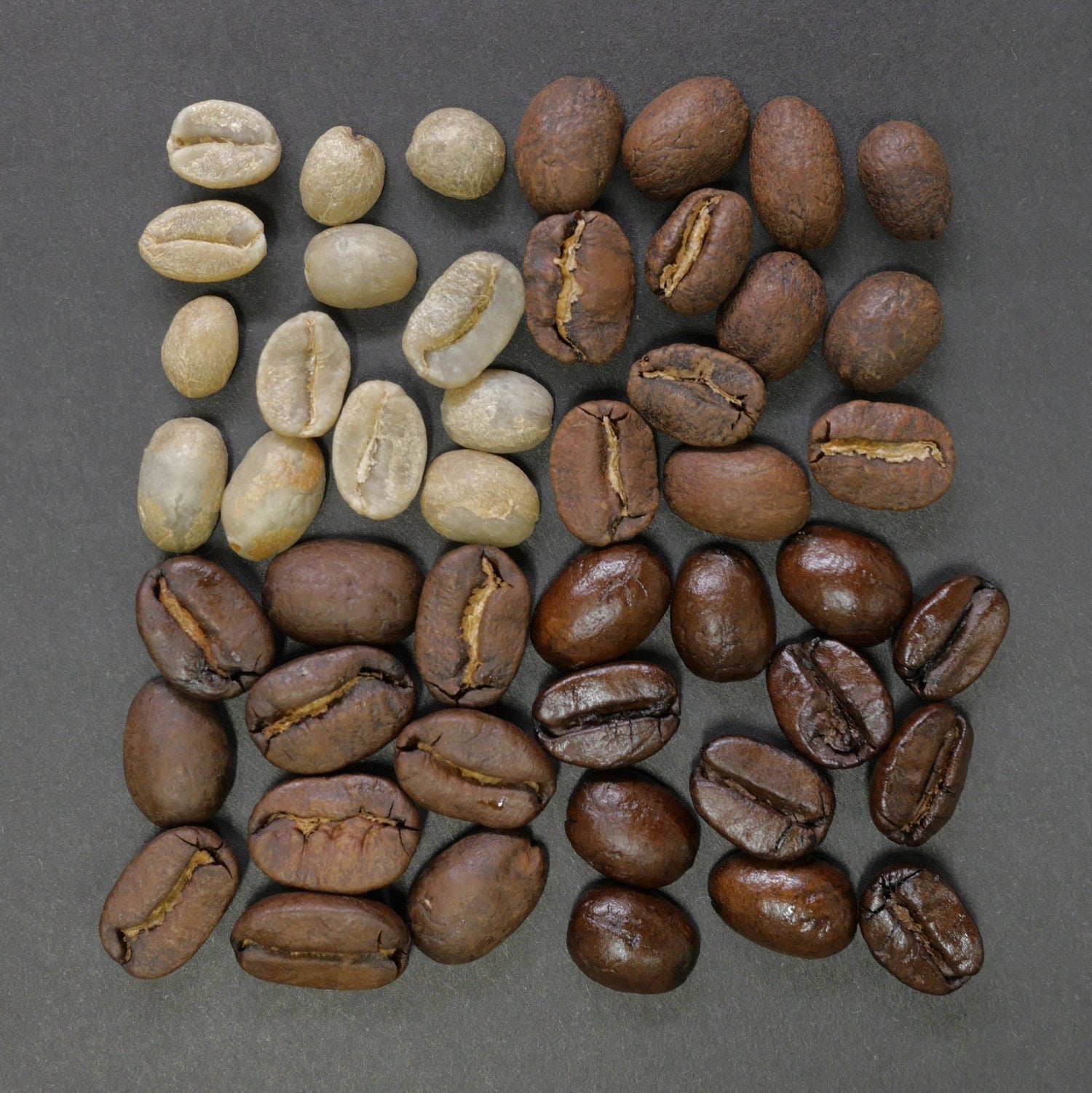The specialty coffee movement has had a profound impact on the Colombian coffee industry, forever changing the way Colombian coffee is perceived and consumed. This movement, which focuses on producing and serving high-quality, unique, and ethically sourced coffee, has elevated Colombian coffee to new heights in terms of flavor, reputation, and market demand. As a result, Colombian coffee farmers have been able to command higher prices for their beans, leading to improved livelihoods and a renewed sense of pride in their craft.

What is specialty coffee?
Specialty coffee is a term used to refer to the highest quality of coffee beans, which undergo thorough inspections and taste tests along the way. It is the result of meticulous focus on quality, above all else, in the coffee production chain, from farming to distribution.
Specialty coffee starts with the coffee farmer, who has spent decades perfecting the farming practices on their farm to produce the highest-quality arabica beans possible. They spend decades, if not generations, testing and experimenting to find the perfect combination of coffee bean cultivar, elevation, climate, soil, and moisture. Then, they spend years nursing the coffee plants before they ever make it to the first harvest. During harvest, the farmers will make numerous passes through the plantation to only harvest the ripest coffee cherries and remove any with defects.

Then, coffee buyers, trained to identify top-quality unroasted, or green, coffee beans, will decide if the beans meet their standards. Then, the coffee roaster determines the best roasting profile to showcase the best flavor combination of the coffee beans. A skilled barista is the final control, as they decide what the best brew method is to ultimately showcase the specialty coffee.
What is the specialty coffee movement?
Over the last 50 years, the global coffee industry has witnessed the emergence of a remarkable phenomenon known as the specialty coffee movement. This movement represents a significant shift in the way we perceive and consume coffee, with Colombian coffee playing a pivotal role in shaping its trajectory.
The specialty coffee movement is a shift in consumer priorities away from the low-priced, mass-produced coffee of the 20th century and toward quality, causing a surge in demand in recent decades. Consumers have become increasingly particular and eager to explore premium coffee from individual farms to find unique and high-quality coffees.

As consumers developed dissatisfaction with the big-name, mass-produced coffees of the 1960s and 1970s, a shift to single-origin, premium-quality coffee began. Over the decades, this effect snowballed into a big push for high-quality coffee from individual farms with declarations on exact growing methods and metrics such as elevation, rainfall, soil type, and all farming practices, including organic and biodynamic, dry or wet processing, and even labor practices, often covered under fair trade practices.
This movement for specialty coffee has only gained momentum. Some of the factors that contribute to the more recent surge in demand for specialty coffee are global connectivity, sustainability, and culture. The rise in global trade and the ability to virtually source coffee from anywhere around the globe have made ultra-low-production, high-quality coffee more accessible to international markets.
Cultural shifts in coffee-consuming markets such as Europe and the United States have triggered demand for more sustainable coffee farming practices and transparency. Many coffee growers who pride themselves on producing low-volume, high-quality coffees do so without the need for chemicals and are able to institute ethical and sustainable practices both for the farm land and the farmers. This, coupled with the U.S. and, to a lesser degree, European culture shifting toward consumerism and increased demand for premium products, is boosting the market for specialty coffee, which aligns well with the ethos of cultural habits.
What is the significance of Colombian coffee in the global market?
Colombian coffee has had a significant presence in the global coffee market because of its centuries-long history of producing quality coffee in a climate ideal for coffee cultivation. Over time, coffee farmers have figured out that by using primarily Arabica beans in the right locations, they can create high-quality coffee in large quantities and at prices that make Colombian coffee highly competitive in the global market.

Colombia has been producing coffee since the 17th century and has certainly figured out how to produce quality coffee. Coffee is so engrained in the culture that the token and symbol for true hospitality in Colombia is a "tinto", or small cup of black coffee. Over the centuries, the country shifted its production almost entirely to the Arabica variety, known for its smooth body, robust flavor, and higher acidity. The country's geographic variability lends itself to diversity, resulting in three major and distinct coffee-growing regions that produce significantly different styles.
As a result of their success, the country has built its economy and marketing power around its coffee industry, guaranteeing that the nation remains a competitive global leader for coffee exports. Today, Colombia is looked to by specialty coffee roasters and even barista championship competitors as one of the best coffees for specialty-grade coffee.

How has the specialty coffee movement influenced Colombian coffee production?
The specialty coffee movement's demand for high-quality and unique coffee experiences boosted Colombian coffee production. With its reputation for growing some of the finest Arabica beans from thousands of single-farm producers, Colombian coffee has been instrumental in the movement and, in turn, boosted its revenue and improved the quality of life for many Colombian coffee farmers.
Colombia's diverse climate and geography result in a wide range of flavor profiles, from acidic and fruity to round and chocolatey. This diversity has made Colombia a desirable country of origin for coffee fanatics looking for diversity in their specialty coffees.
Additionally, due to the nature of Colombian culture, many Colombian coffee farmers have been practicing sustainable and responsible farming for generations. With the increased demand for specialty coffee, many farmers have become fair trade certified to demonstrate their commitment and further align with the values of socially conscious consumers who want to support ethical and environmentally responsible coffee production.

Coffee is deeply rooted in the history and culture of Colombia. Since its first planting in the 17th century, coffee has become the main crop grown in Colombia. Coffee is so intertwined with the country and the culture that it is the welcome gift poured if you visit a Colombian's house. Coffee composes 22% of Colombia's gross domestic product (GDP)! It hasn't always been a glowing time for coffee production in Colombia, however. With fluctuating prices, climate change, and limited infrastructure, over 550,000 families—the approximate number of families depending on coffee farming for a living—have struggled historically. The solution for many has been to focus on quality. Colombians traditionally harvest by hand and only harvest the best and ripest coffee cherries. By getting further fair trade certifications and practicing sustainability, their coffees appeal to an emerging market of people in the specialty coffee movement who are willing to pay far higher prices for premium coffee. The increase in revenue has directly resulted in improved livelihoods for the 550,000 coffee farming families in Colombia. These improvements have not only translated to more money but also better infrastructure such as roads, schools, and even healthcare for the entire country, boosting Colombia's quality of life. Many farmers have also experienced more fulfillment in their work and a renewed sense of pride and purpose in their work, particularly fueled by a boost in American coffee tourism, as many coffee lovers flock to Colombia to witness the coffee farming process firsthand.
For more reasons why Colombian coffee is so amazing, read here!
One of the drawbacks of the specialty coffee movement in Colombia is that many farmers still cannot afford to make the switch to specialty coffee production. Whether they are in less ideal land for cultivating premium coffee or don't have the funds to become fair trade certified, there are many drawbacks, and the risk of being left behind in the widening rift between traditional coffee farmers and those that cater exclusively to premium beans is growing. Additionally, with a shift to a new market, some consumers will inevitably be left behind. As Colombia shifts more toward specialty coffee production, those consumers who like Colombian coffee for its reliable and affordable coffee options may soon have to look elsewhere.
If you want to try Colombian specialty coffee for yourself, check out our Colombian coffee here! Roasted to order and shipped right to your door.








